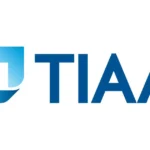Introduction
“RNs can start an IV hydration business by leveraging their medical expertise, following legal requirements, and ensuring proper training.
The healthcare industry is continually evolving, providing numerous opportunities for registered nurses (RNs) to leverage their expertise and enter entrepreneurial ventures.
One such opportunity is the IV hydration business, which offers clients intravenous (IV) fluids, vitamins, and minerals for various health benefits.
This article will explore the potential for RNs to start an IV hydration business, covering essential aspects such as legal requirements, education and training, business planning, financing, location setup, team building, marketing, patient care, insurance, technology, and growth strategies.
By the end, you’ll have a comprehensive understanding of what it takes to embark on this promising business venture.
Legal Requirements and Regulations

Starting an IV hydration business involves adhering to several legal requirements and regulations. These regulations vary by state, so it’s crucial to research and understand the specific laws in your area.
Key considerations include obtaining the necessary business licenses, ensuring compliance with state nursing boards, and meeting health department standards.
Additionally, it’s essential to have clear protocols for handling medical emergencies and maintaining patient confidentiality according to HIPAA guidelines.
Education and Training
To operate an IV hydration business, RNs must have specialized education and training. This includes understanding the pharmacology of IV fluids, vitamins, and minerals, as well as mastering the techniques for safe and effective IV administration.
Many RNs already possess these skills, but additional certification courses can enhance their knowledge and credibility. Continuous education is also important to stay updated with the latest advancements in IV therapy.
Business Planning and Strategy
A well-thought-out business plan is crucial for success. This plan should include a detailed market analysis, identifying target demographics and competitors. Establishing a clear value proposition and unique selling points will help differentiate your business.
Additionally, the plan should outline operational strategies, pricing models, and revenue projections. Having a robust business strategy will guide your decisions and attract potential investors.
Financing Your Business
Securing financing is a significant step in starting an IV hydration business. Costs include purchasing medical equipment, leasing a location, marketing, and hiring staff. Options for financing include personal savings, bank loans, and investors.
Creating a detailed financial plan with projected expenses and revenue will help you determine the amount of funding needed and improve your chances of securing it.
Location and Setup
Choosing the right location is critical for attracting clients. A high-traffic area with good visibility and accessibility will increase your chances of success. The setup should include a comfortable and sterile environment for administering IV treatments.
This involves investing in quality furniture, medical supplies, and ensuring compliance with health and safety regulations. An inviting and professional atmosphere will enhance client experience and trust.
Building a Professional Team
A successful IV hydration business relies on a competent and professional team. Hiring skilled nurses and support staff who are compassionate and knowledgeable will ensure high-quality patient care.
Additionally, providing ongoing training and creating a positive work environment will help retain top talent. A cohesive team will contribute to the overall success and reputation of your business.
Marketing and Promotion
Effective marketing strategies are essential for attracting and retaining clients. This includes creating a professional website, utilizing social media platforms, and investing in online advertising. Offering promotions, such as discounts for first-time clients or referral bonuses, can also drive business.
Networking with local health clubs, spas, and wellness centers can provide valuable partnerships and referrals. A well-rounded marketing plan will help build brand awareness and establish your presence in the community.
Patient Care and Safety
Ensuring patient care and safety is paramount in an IV hydration business. This involves following strict protocols for IV administration, monitoring patients for adverse reactions, and maintaining a clean and sterile environment.
Clear communication with clients about the benefits and risks of IV therapy is also crucial. Prioritizing patient safety and comfort will build trust and encourage repeat business.
Insurance and Liability
Having the right insurance coverage is vital to protect your business from potential liabilities. This includes malpractice insurance, general liability insurance, and property insurance.
Consulting with an insurance professional who understands the healthcare industry will help you choose the appropriate coverage. Additionally, implementing risk management strategies and maintaining detailed records will minimize liability risks.
Technology and Record Keeping
Utilizing technology can streamline operations and improve patient care. Electronic health records (EHR) systems help maintain accurate patient information and ensure compliance with regulations.
Additionally, scheduling software can optimize appointment bookings and reduce administrative burdens. Investing in the right technology will enhance efficiency and improve the overall client experience.
Monitoring and Growth

Monitoring the performance of your IV hydration business is essential for growth. Regularly reviewing financial reports, client feedback, and staff performance will help identify areas for improvement. Implementing strategies for continuous improvement, such as staff training and client loyalty programs, will foster business growth. Additionally, staying informed about industry trends and expanding services can attract new clients and increase revenue.
Importance of RNs Starting an IV Hydration Business
RNs are uniquely positioned to start IV hydration businesses due to their medical expertise and patient care skills. This venture allows RNs to apply their knowledge in a new, entrepreneurial setting, offering clients valuable health and wellness services.
Additionally, owning a business provides RNs with greater autonomy and the potential for financial rewards. By leveraging their skills and experience, RNs can successfully navigate the challenges and opportunities of the IV hydration market.
Additional Tips
- Stay Updated: Continuously educate yourself on the latest trends and advancements in IV therapy to offer the best services.
- Client Feedback: Regularly gather and analyze client feedback to improve services and address any concerns.
- Professional Network: Build a network of healthcare professionals for referrals and collaboration.
- Quality Supplies: Invest in high-quality medical supplies to ensure safety and efficacy.
- Customer Service: Prioritize excellent customer service to enhance client satisfaction and loyalty.
Pros and Cons
| Pros | Cons |
| High Demand: There is a growing demand for IV hydration services due to the increasing focus on health and wellness. | Regulatory Challenges: Navigating the various state and federal regulations can be complex and time-consuming. |
| Leverage Medical Expertise: RNs can utilize their medical knowledge and skills to provide safe and effective treatments. | Initial Investment: The startup costs for equipment, location, and marketing can be significant. |
| Flexible Scheduling: Business ownership allows for more control over work schedules and hours. | Ongoing Education: RNs need to stay updated with the latest IV therapy advancements, which requires continuous education. |
| Autonomy: Owning a business provides greater autonomy and the ability to make independent decisions. | Liability Risks: The business involves medical procedures, which carry inherent risks and potential liability issues. |
| Financial Rewards: Potential for significant financial returns with successful business operations. | Marketing Challenges: Building a client base and standing out in a competitive market requires effective marketing strategies. |
| Client Trust: RNs can build strong relationships with clients based on trust and professional care. | Staffing: Hiring and retaining qualified staff can be challenging and requires careful management. |
| Diverse Services: Ability to offer a variety of treatments, such as vitamin infusions and hydration therapy, to meet different client needs. | Location Dependency: The success of the business can be highly dependent on the chosen location and its accessibility. |
| Professional Growth: Opportunity for professional and personal growth through business management and client interactions. | Insurance Costs: Obtaining the necessary insurance coverage can be expensive. |
| Community Impact: Providing valuable health services can positively impact the local community. | Operational Challenges: Managing the day-to-day operations, including inventory, scheduling, and compliance, can be demanding. |
| Networking Opportunities: Collaborating with other healthcare providers and wellness centers can enhance business growth. | Emergency Preparedness: Having clear protocols for medical emergencies is essential, requiring thorough preparation and training. |
Answer to key Question
1. Can an RN start an IV hydration business without additional certification?
While RNs possess the basic skills needed for IV administration, obtaining additional certification in IV therapy can enhance their knowledge and credibility. This specialized training ensures they are well-prepared to offer safe and effective treatments.
2. What are the common legal requirements for starting an IV hydration business?
Common legal requirements include obtaining business licenses, complying with state nursing board regulations, meeting health department standards, and adhering to HIPAA guidelines for patient confidentiality.
3. How much initial investment is required to start an IV hydration business?
The initial investment can vary widely based on location and business size but typically includes costs for medical equipment, leasing a facility, marketing, and staffing. A detailed financial plan can help determine the exact amount needed.
4. What are the primary benefits of an IV hydration business for clients?
Clients benefit from improved hydration, faster recovery from illnesses or hangovers, enhanced athletic performance, and overall wellness. IV hydration can deliver nutrients more efficiently than oral supplements.
5. How can an IV hydration business attract and retain clients?
Effective marketing strategies, such as a professional website, social media presence, and promotions, are key. Providing exceptional customer service, maintaining a clean and welcoming environment, and ensuring high-quality treatments will encourage repeat business and referrals.
Education and Training
| Training Type | Description | Duration | Cost |
| Basic IV Therapy Course | Covers IV administration techniques and safety protocols. | 1-2 days | $200-$500 |
| Advanced IV Certification | In-depth training on pharmacology, patient assessment, and emergency response. | 1 week | $1,000-$2,000 |
| Continuing Education | Ongoing courses to stay updated with latest IV therapy advancements. | Varies | $100-$300 per course |
By focusing on providing fresh and accurate information without any fluffy data, this article aims to equip RNs with the knowledge needed to successfully start and operate an IV hydration business.
How To Start A Car Wash Business
Conclusion
Starting an IV hydration business can be a rewarding venture for RNs, combining their medical expertise with entrepreneurial opportunities.
By understanding and navigating the legal requirements, investing in education and training, planning strategically, securing financing, and focusing on patient care and safety, RNs can build a successful business.
With dedication and continuous improvement, an IV hydration business can thrive, offering valuable services to clients and providing RNs with professional and financial growth.










